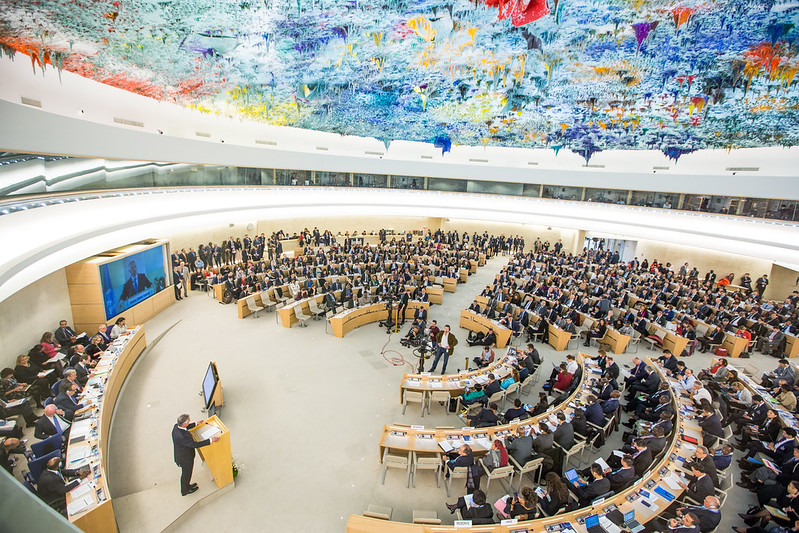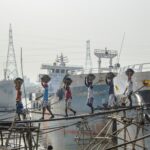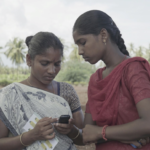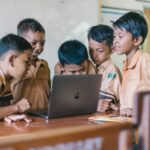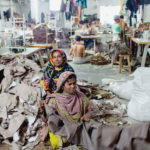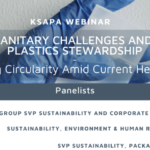Environmental and Human Rights due diligences allow businesses and investors to address their responsibilities towards both people and planet.
More than 50 countries now plan to enforce a version of Human Rights due diligence. To that end, however, they rely on largely voluntary approaches – like awareness-raising or capacity-building. That said, France, Germany, the United Kingdom, the Netherlands and California have lent teeth to the process. They enforce legally-binding instruments to compel businesses to monitor, prevent and address Human Rights and environmental abuses – and do so throughout their supply chains. Europe’s proposed mandatory Human Rights due diligence directive is expected to convey the legal certainty the private sector so clearly aspires to, so that this essential tool may go mainstream.
In this piece, Ksapa joins researchers Mary-Lee Rhodes and Linda Benrais from the Council on Business and Society to share perspectives on ongoing Human Rights due diligence efforts.
What is your take on the effectiveness of current environmental and Human Rights due diligence efforts?
Mary-Lee Rhodes: The short answer is we collectively need to step up our efforts. None of us, really, are ready for Human Rights due diligence. The European Commission’s study on due diligence requirements through the supply chain indeed underlined the inherent limitations of voluntary measures. Companies working or based in the European bloc (as elsewhere) cause, contribute to or are at least linked to Human Rights abuses and environmental impacts through their operations, value chains and business relations.
Farid Baddache: This despite the fact global standards have converged over the past 20 years around a 5-step due diligence process. It starts with identifying and assessing environmental and Human Rights risks. We can mitigate, prevent and remedy them, before monitoring the impact of such measures and communicating and accounting for these impacts down the line. Such is indeed the basis of the United Nations’ Guiding Principles for Business and Human Rights, the OECD Guidelines for Multinational Enterprises as well as the ILO Tripartite Declaration of Principles concerning Multinational Enterprises and Social Policy.
Mary-Lee Rhodes: What is true at a global and multilateral level certainly is in Ireland as well. The Trinity Centre for Social Innovation applied the Corporate Human Rights Benchmark Core UNGP Indicator Assessment to benchmark selected firms. It found 88% of the Top 50 companies score below 50% while half of companies score 20% or below. With that in mind, the same team outlined 5 recommendations for the Irish Action Plan on Business and Human Rights. They essentially come down to establishing clear goals, timebound plans and responsibilities for all businesses operating in Ireland. That way they can report transparently on their human rights and environmental performance.
Furthermore, the recommendations included creating an independent verification organization to report every 2 to 3 years on compliance with the UN Guiding Principles by all businesses operating in Ireland above a certain size and/or in particular industries. The burden of the resulting human rights and environmental reporting could be funded through a voluntary contribution by all companies included in the reporting net.
Where does cross-sector collaboration sit in terms of mainstreaming environmental and Human Rights due diligence?
Linda Benrais: The fact that the Trinity Centre for Social Innovation would recommend that reporting costs be shared speaks to the importance of collaboration in mainstreaming environmental and Human Rights due diligence. If reporting is key, board engagement and whistleblowing procedures remain essential at the corporate level. That said, the stakes are somewhat higher and extend beyond the corporate remit.
This was notably illustrated by initial responses to the COVID-19 pandemic have been mixed, where the most progressive players sought to balance short-term philanthropy and assistance with longer-term commitments to improve living and working conditions at large. The global crisis shifted businesses’ understanding of their own responsibilities, from a place of goodwill to concerted action. A new, ethically-motivated form of governance is now the cornerstone of cross-sector partnerships set to deliver actual decarbonized and inclusive transformations.
Farid Baddache: Working with players from across the board (State, civil society organizations, competitors…) is also key for businesses to design large-scale due diligence plans and implement them at very granular level. It effectively links policy and action. Different departments within multinational organizations. Businesses and their stakeholders. This harks back to a company’s capacity to effectively implement the UNGP by monitoring, preventing and addressing Human Rights and environmental abuses, where local stakeholders are key to identify risks along complex supply chains, implement remediation measures and assess their impact on the ground.
Linda Benrais: Collaboration lies at the heart of the human security approach promoted by LSE IDEAS. It endeavors to enhance collaboration and multi-stakeholder partnerships between private sector actors, governments, and civil society to build resilient societies, improve social cohesion, and mitigate vulnerability in the spirit of the 2030 Agenda. The goal is in fact to move beyond and human rights due diligence and compliance to engage more proactively and profitably at the local level. The concept of human security purports to link Human Rights due diligences more explicitly to opportunities for positive corporate impact.
Where do you see the private sector’s greatest learning curve, should environmental and Human Rights due diligence become mandatory?
Linda Benrais: For the moment, when we look at Human Rights, we are essentially reactive. At best, we remedy past wrongs. At worst, we overlook stakeholder dialogue as a means of mediation between business and communities before they land in court. Actual Access to remedy, however, may not rely entirely on legal solution. With sensitive issues like child labor or migrant work in particular, it demands robust and continued stakeholder dialog to address their interwoven root causes. The human rights due diligence and compliance, stimulated by the necessary dissuasive legal sanctions, could be combined and articulated to preventive and proactive solutions focusing on human security and the risk-informed approach. Mediation and other ADRs are attractive tools.
They help finding out appropriate solutions to contribute effectively to the SDGs. Also they support developing lessons learnt from the ground. We can then move forward at the company level, including in the most fragile contexts.
Mary-Lee Rhodes: To tap into true progress, companies will indeed need to move beyond what is currently a compliance exercise. As it stands, environmental and Human Rights due diligence is mainly entrusted to risk management, legal advisory and reporting teams. Businesses must check themselves to acknowledge their environmental and Human Rights risks. Once they recognize something is wrong, they can work with external stakeholders. They can address it holistically, proactively and systematically across the value chain. Can vulnerable workers report violations? Are human rights defenders exposed to retaliation by company actors? How do they manage claims investigation and remediation? What is the ultimate impact of their remediation measures and has the risk of harmful impact been reduced going forward?
Farid Baddache: Working across the board from the get-go also allows businesses to circumvent the current lack of harmonization at the administrative level. As it stands, various administrative and judicial authorities struggle to structure central registries. Especially for tasks such as annual reporting, investigate infringements, enforce compliance or provide access to remedy or sanction infringements. The onus is also on governments to streamline a smart policy mix. This policy would not only tap into vigilance mechanisms. They implements available foreign aid and trade tools to create a positive environment for business action.
Conclusion: New Frontiers in Environmental and Human Rights Due Diligence
A mandatory environmental and Human Rights due diligence directive would reduce corporate liability. It would also level the playing field. Businesses will gain the necessary traction and leverage to address systemic issues across their supply chains.
Based on this understanding, Ksapa developed its flagship SUTTI program to deliver scalable capacity-building programs across fragmented value chains. Our in-house digital suite indeed maximizes access to training via an e-learning tool. It tracks program impact against environmental, Human Rights and economic performance targets. This ultimately helps industrial groups better understand their procurement map. It also powers information-sharing and data collection via a low-tech solution. Ultimately making it adaptable to most contexts and users, including vulnerable populations.
While digital technologies convey their own set of Human Rights risks, they allow businesses to reach out to rural areas. They’re allowing it at acceptable cost. They also convey automation opportunities poised to greatly diminish the financial burden of due diligence. Combining local perspective with harmonized regulations and tools eventually gear their respective strengths towards shared positive impacts. Ultimately making progress on inclusive growth, improved governance and the sustainable use of the natural environment.
As a sustainability and corporate responsibility consultant, Margaux joined Ksapa with international experience in public, private and non-profit organizations. She had previously worked for the Deloitte and Quantis sustainability consultancies, lobbied for environmental research on behalf of the INRA and contributed to Total’s extra-financial reporting.
A Franco-American citizen, Margaux holds sustainability certifications from the IEMA and Centrale-Supélec on top of a Masters degree in History, Communications, Business and Internal Affairs.
She is fluent in French, English and Spanish.

